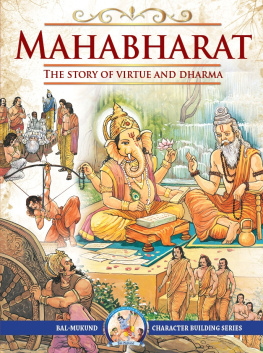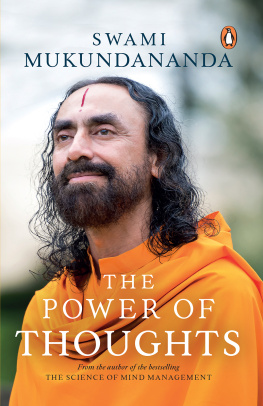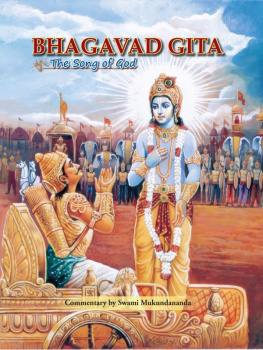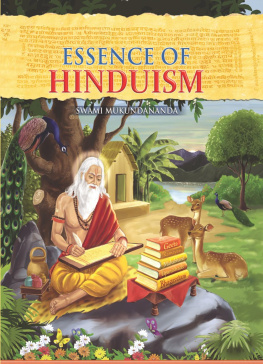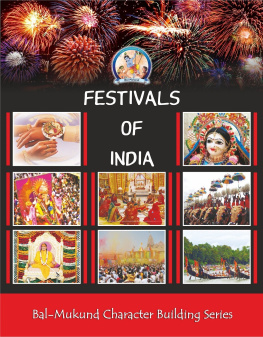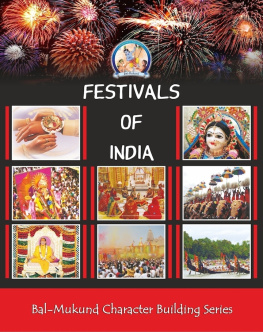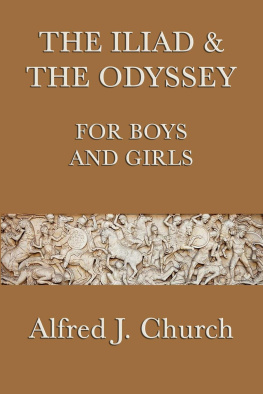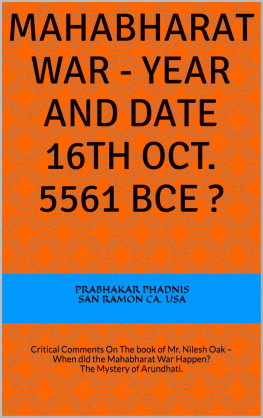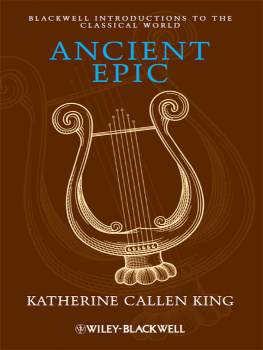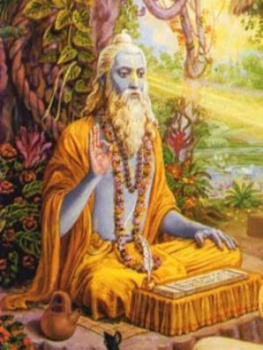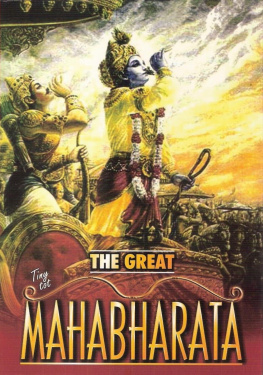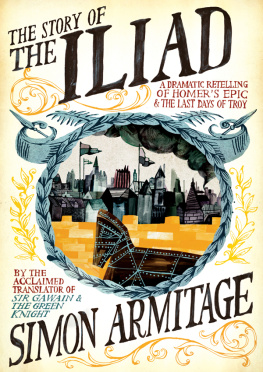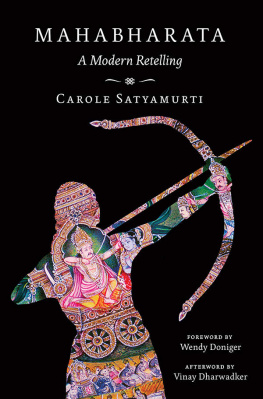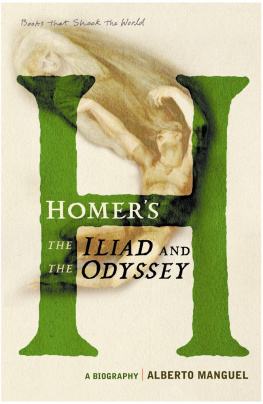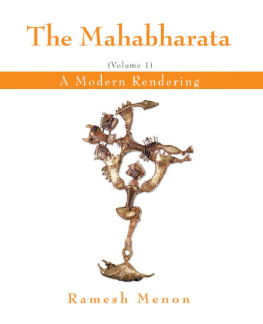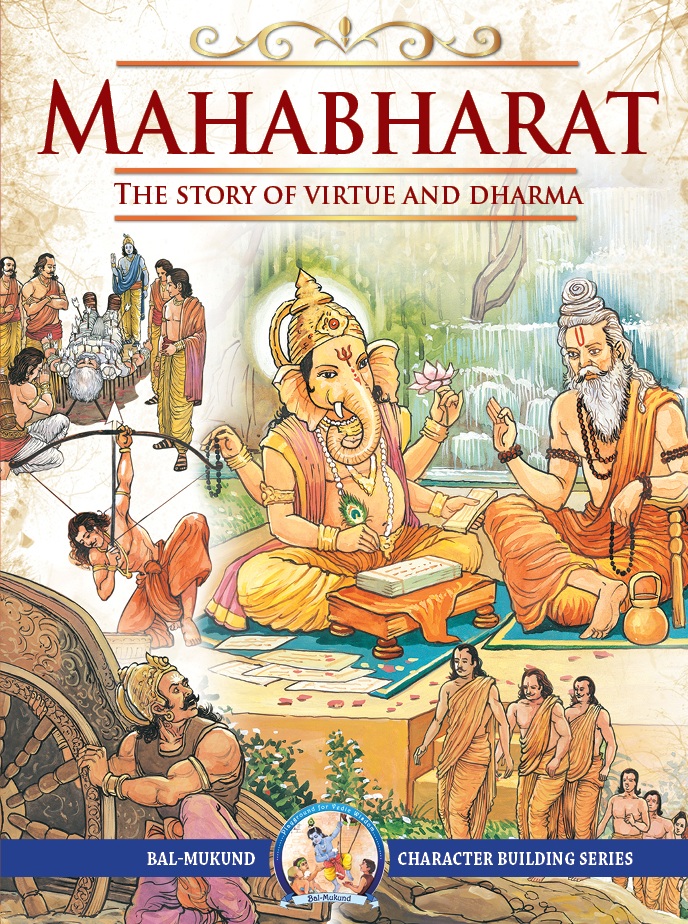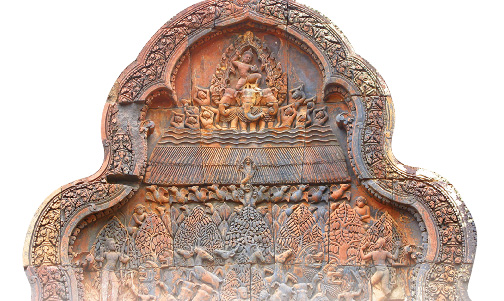Dedication
This book is dedicated to our Beloved Spiritual Master, Jagadguru Shree Kripaluji Maharaj, who is illuminating this world with the purest rays of Divine knowledge and love.
He taught us by his example, the importance of nurturing souls with love and care, to help them realize a glorious future. He gave us the supreme process of building a noble value system by teaching selfless Divine love.
We are confident that by his blessings this book will be helpful in inspiring and elevating seekers, thereby creating a better world for all of us.
Swami Mukundananda
Foreword
The Mahabharat is one of the most renowned epic poems of all times. It contains 100,000 couplets, and is nearly eight times as long as Homers Iliad and Odyssey put together. This colossal epic was composed by the renowned sage Ved Vyas, and it was none other than Lord Ganesh who assisted him in scripting this enormous text.
The Mahabharat is an extremely gripping narrative of internecine warfare in the Kuru family. It tells the story of how the Kauravas resorted to the deceit and treachery to cheat the Pandavas of their kingdom, how the Pandavas fought for their rights, and how in the end good triumphed over evil. However, unlike the Greek epics, the Mahabharat is much more than an enthralling story. It conveys a very strong philosophical and spiritual message. It is interspersed with numerous episodes that serve as great lessons for tackling difficult situations that we may encounter in our day-to-day life.
Over the centuries, people have drawn great inspiration and spiritual strength from the Mahabharat. Its interesting array of characters display almost the entire spectrum of human emotions including jealousy, greed, pride, selfishness, hatred, evil, kindness, sacrifice, friendship, forgiveness, truth, faith, obedience, and love. On the one hand, there are noble characters like Bhishma, Vidur, Gandhari, Drona, and Yudhistra. On the other hand there are evil characters like Duryodhan, Shakuni, Dushasan, and Jayadrath. Then there are the heroic characters like Arjun, Karna, Bheem, Abhimanyu and Ghatotkatcha. And above all, there is Shree Krishna himself, the Supreme Lord of all creation! Most of the characters of the Mahabharat are human, with their own faults and foibles, which makes it easier to relate to their struggles.
For the Hindus, another reason to revere this sacred text is that the most prized jewel of the Vedic scriptures, the Bhagavad Gita, finds its home within the core of the Mahabharat. As if to reinforce the fact that the message of the Bhagavad Gita is applicable in even the most difficult conditions, Lord Krishna revealed the Bhagavad Gita to Arjun on the battlefield of Kurukshetra, in the extremely chaotic setting of the onset of the great battle between the Pandavas and the Kauravas. The Bhagavad Gita consists of only 700 verses, arranged in 18 cantos, but it contains the essence of the entire Vedic wisdom. Such is the power of its teachings that they continue to guide generations. In more recent times, famous thinkers such as Mahatma Gandhi, Robert Oppenheimer, Carl Jung, Herman Hesse, and Aldous Huxley, to name just a few, have acknowledged the inspiration they have drawn from the Bhagavad Gita.
The Mahabharat is truly a timeless classic and its message is highly relevant even in this day and age. Among other things, the Mahabharat teaches the importance of leading a righteous life, doing ones duty selflessly without worrying about the outcome, not resorting to duplicity and perfidy, not being addicted to vices like gambling, not coveting what belongs to others, and standing up gallantly against injustice. Within the Mahabharat we also find treatises on many disciplines including dharma, governance, philosophy, morality and virtue.
I hope that this abridged version of Mahabharat, which is one of our noblest heritages, will guide and inspire the next generation of business and political leaders, journalists, doctors, lawyers, engineers, health-care professionals, and social workers throughout their lives.
Swami Mukundananda
Table of Contents
1. The Sarp Yajna
Janmejay sat silently on his throne, his handsome face solemn. He was a young man in his prime, his powerful body dressed in silk robes and flashing gems. His crown, the crown of his ancestor King Yudhishthir, glittered in the light of the holy fire as Janmejay watched the Pundits perform the great Sarp yajna .
The Pundits sat on a huge earthen platform, prepared exactly as the scriptures prescribed, surrounding the holy fire. Reciting mantras from the Vedas, the priests offered ghee and grains into the fire as they chanted together: Swaha !
They called the names of serpents and Janmejay watched as the snakes appeared from all directions. Helpless against the power of the mantras, the serpents were pulled to the yajna place and into the fire itself. The snakes hissed and fought against the power that compelled them but it was useless to fight. The mantras forced them into the flames.
Swaha ! the Pundits chanted as black and green serpents fell out of the blue sky and into the orange fire.
Janmejay gritted his teeth and kept watching, even though it was difficult to see so much life end. He must take revenge for his fathers death. His father, noble King Parikshit, had been killed by the serpent king Takshak.
It was Janmejays duty to see that justice was done for everyone in his kingdom of Hastinapur. So when the Pundit Uttank had come to him and asked Janmejay why he wasnt giving justice to his own father, Janmejay had been dismayed. Hed been very young when Parikshit had gone away and hed not known how father had died. When Uttank informed him that his fathers murderer, Takshak, roamed free in the land, Janmejay was furious.
He swore that he would punish his fathers murderer and this yajna was the result of his vow.
Swaha ! the Pundits chanted, as orange and silver and gold snakes were pulled up from the ground and dragged towards the yajna by the mantras.
Save us! Save us! the serpents called out to anyone who would listen.
Swaha ! the Pundits chanted and the serpents fell into the fire, hissing as they burned.
The area around the sacrifice was filled with priests and sages as they worked to fulfill complicated yajna rules. Janmejay had invited all the Pundits of the land to come and every day more arrived to assist and advise him.
As was Janmejays duty, he donated much in charity during this time. All the people in his land were given food and clothing even when they didnt need it because there could be no interruptions during the yajna . Janmejay had expertly planned the running of the kingdom and the festivities of the yajna to make this possible.
Swaha ! the Pundits chanted as blue and brown serpents were pulled from the waters of the world and rushed to the flames.

